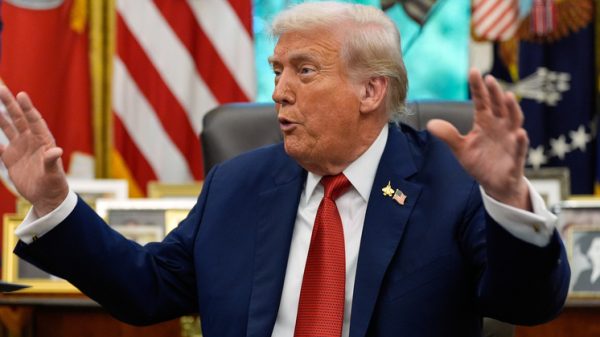Senate Majority Leader Chuck Schumer celebrates the deal
The US Senate passed Joe Biden’s $1.9 trillion coronavirus relief package giving him the biggest victory of his presidency so far.
Senators sat through the night on Friday and eventually passed Mr Biden’s "American Rescue Plan" on Saturday afternoon.
The final voter came after a marathon legislative process called a "vote-a-rama" in which any senator could attempt to add an amendment.
Republicans, and some Democrats, sought to do so but many were voted down.
During the all-night sitting several elderly senators appeared to doze off at their desks, sometimes burying their faces in their hands.
The bill was held up for around 12 hours by a single Democrat — conservaitve-leaning Joe Manchin — until a deal was agreed after a personal phone call from Mr Biden.
Mr Biden personally intervened
The new bill will deliver direct payments of up to $1,400 for most Americans, $350 billion to help cities and states, $130 billion for schools, and many billions for a national vaccine programme, and to help citizens with food and rent.
Under pressure from conservative members of their own party, Democrats agreed to partially scale back aid to millions of people who have lost their jobs in the pandemic.
The stimulus plan has been by far Mr Biden’s biggest early priority as he seeks to tackle the pandemic and rebuild the economy.
Total spending in the bill is nearly one-tenth the size of the entire US economy.
It means Washington will have provided a total of about $6 trillion in emergency assistance over the past year in the battle against the pandemic.
Republicans had opposed Mr Biden’s proposal as too expensive, and complained he had not fulfilled his promise to work with all sides as president.
The bill will need to be passed by the House of Representatives. Nancy Pelosi, the Democrat Speaker, has guaranteed passage there. Mr Biden was expected to sign it into law within days.
Opinion polls have indicated broad public support for the package.
The Senate is currently divided 50-50 between Republicans and Democrats, with Vice President Kamala Harris holding the tie-breaking vote.
That meant Mr Biden had to secure the support of every single Democrat senator to pass the bill.
On Friday, as the vote-a-rama process began, new employment figures showed an unexpectedly high surge in new jobs, with the US adding 379,000 in February.
Mitch McConnell, the Republican leader in the Senate, said Democrats had "inherited a tide that was already turning" and urged opposition to the bill.
Coronavirus USA Spotlight Chart — cases default
But the biggest hurdle for Mr Biden to overcome proved to be Joe Manchin, perhaps the Senate’s most conservative Democrat.
Mr Manchin, who represents West Virginia, objected to a provision for an extra $400 in weekly unemployment benefits until August.
The stand-off between Mr Manchin and his own party lasted 12 hours until a compromise was agreed with Mr Biden.
Under the deal there will be $300 in extra weekly emergency unemployment benefits until October.
The Senate also voted against including in the bill an increase in the federal minimum wage to $15 per hour by 2025.
That amounted to a major defeat for left-wing Democrats led by Senator Bernie Sanders.
In a dramatic moment Kyrsten Sinema, a conservative Democrat senator from Arizona, sided with Republicans and gave a thumbs-down signal as she voted against the $15 minimum wage.
It was an echo of the moment in 2018 when the late Republican senator John McCain gave a similar gesture as he joined Democrats in a crucial vote on Obamacare.
One of many late deals on the bill involved Democrats lowering the maximum level at which people could receive any financial stimulus to $80,000 for individuals and $160,000 for couples.
The bill eventually passed 50-49, without the need for the vice president to cast a tie-breaking vote, because a Republican senator had to leave Washington for a family funeral.




















































Свежие комментарии